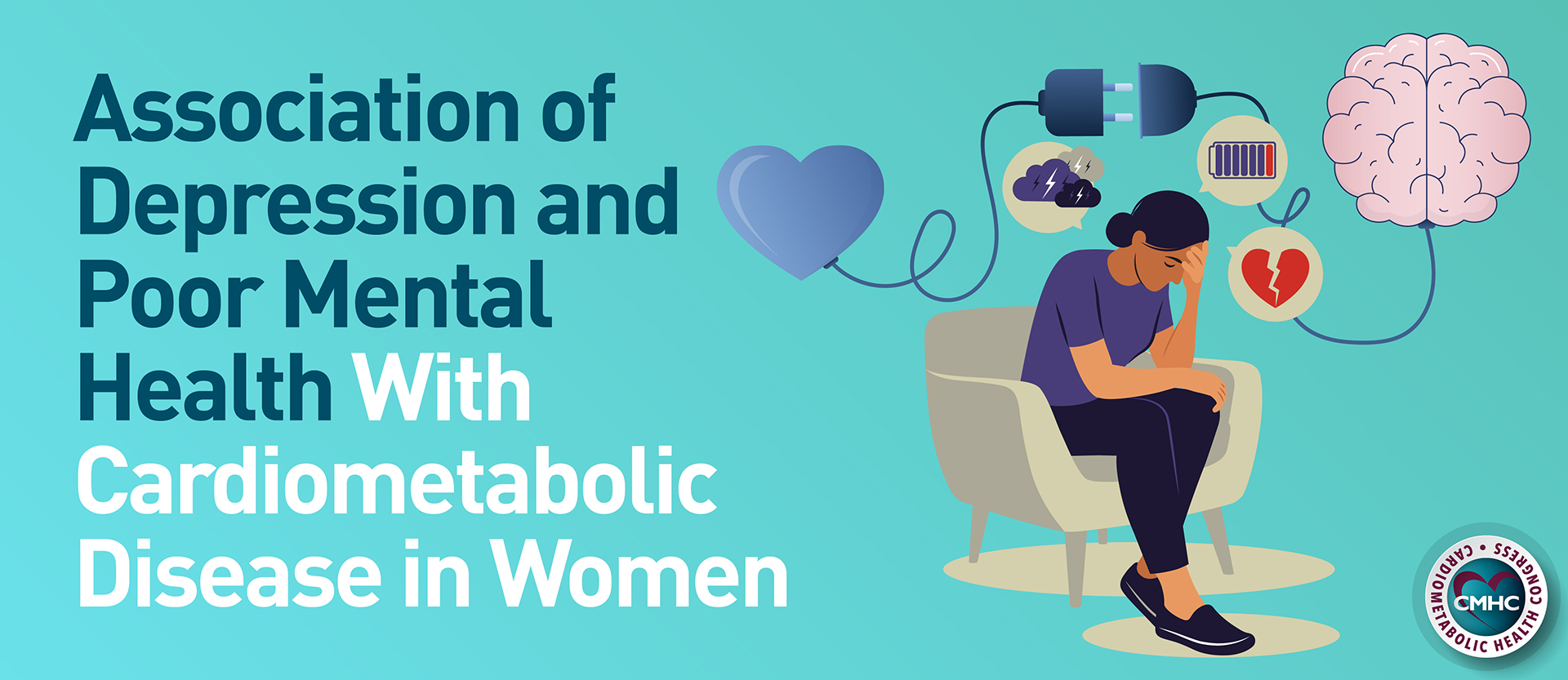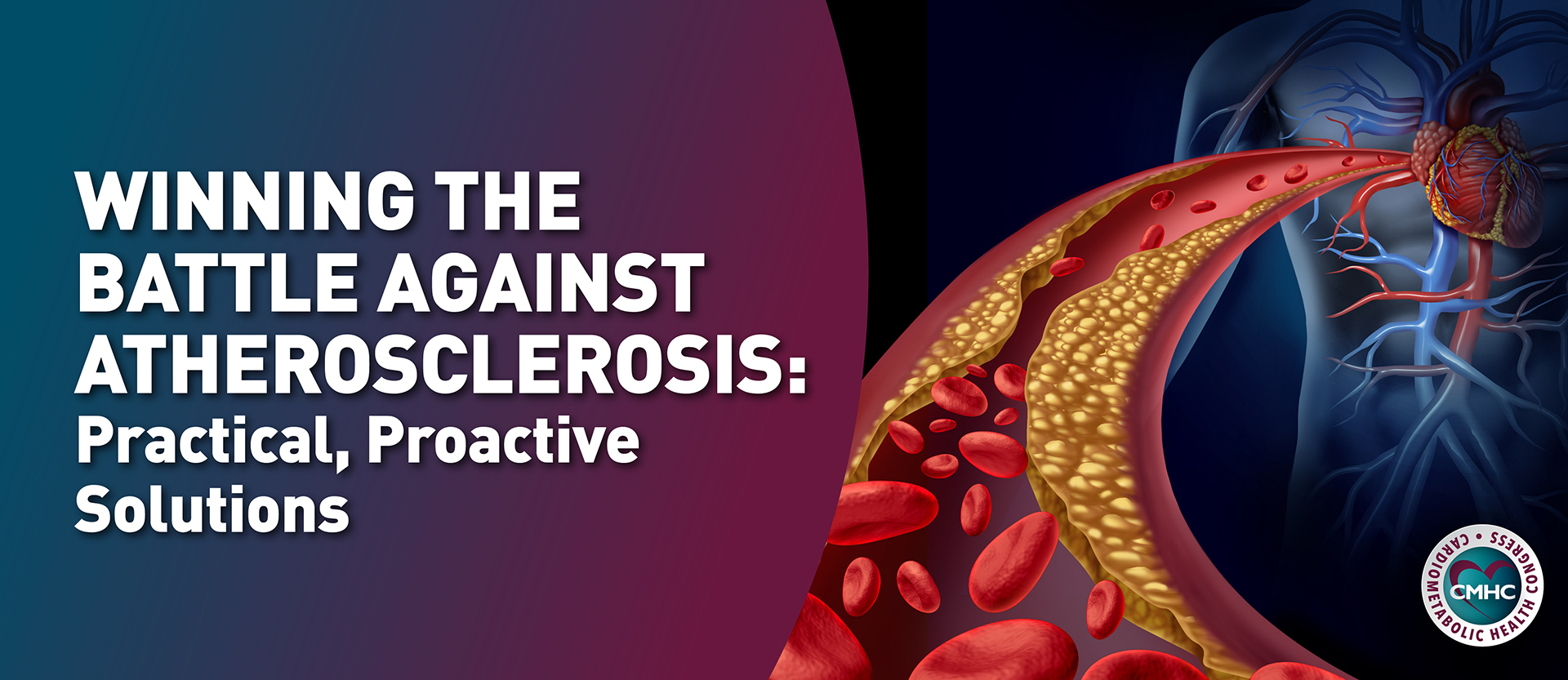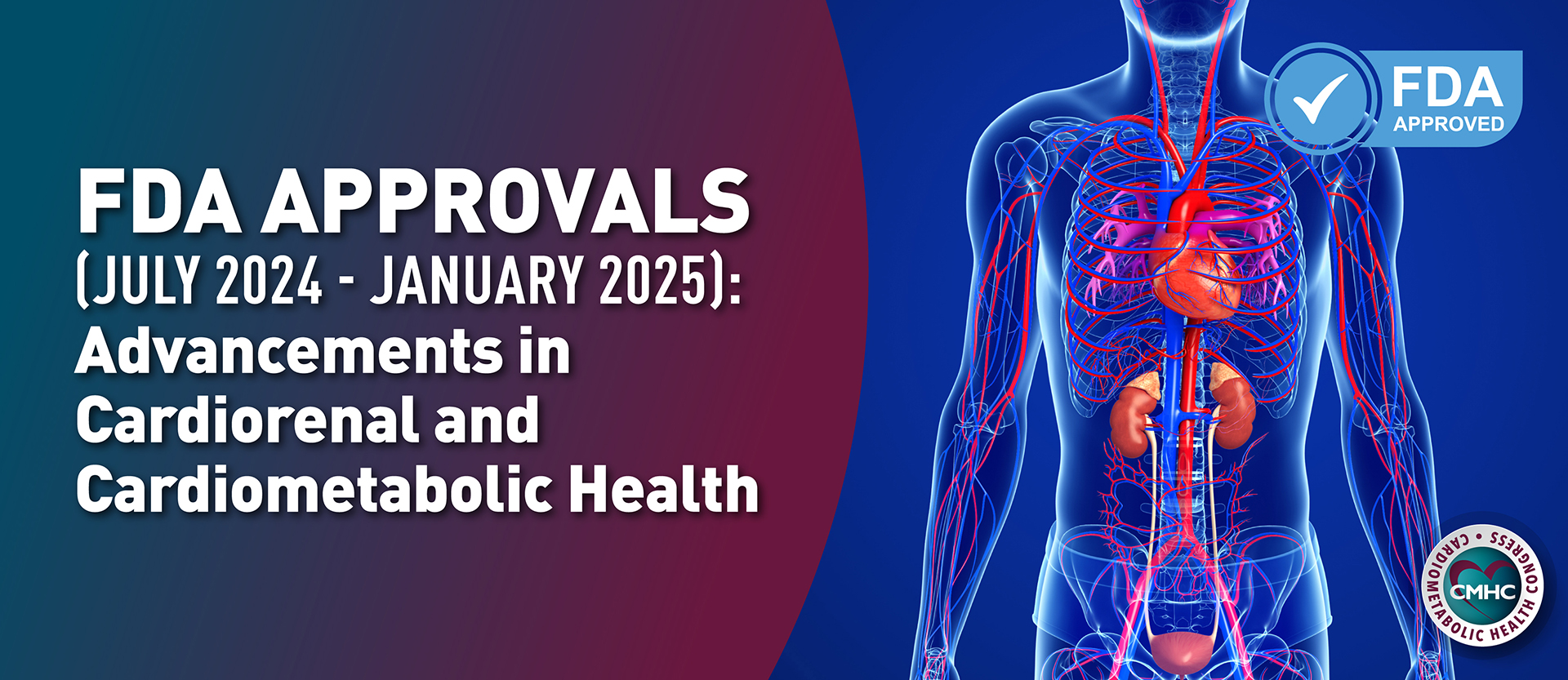May marks Mental Health Awareness Month, and at the Cardiometabolic Health Congress (CMHC), we’re determined to address mental health, especially its significant impact on women and cardiometabolic disease. Recognizing the disproportionate effect on women, it’s crucial to tackle this complex interconnection to improve outcomes for women.
As a community, one important focus is women’s heart health, and therefore addressing key themes in healthcare interaction:
Depression and stress often go unaddressed.
Women frequently feel judged or stereotyped.
Building strong relationships and ensuring patients feel heard and comfortable are paramount.
Bringing psychological health into the conversation on cardiometabolic disease
The first step toward addressing mental health in women’s heart health is to start talking about it. Too often, stress and depression go unasked in medical consultations, and when you do ask, it’s part of a rote social history form.
Competing priorities, including adhering to guideline-directed medical therapy, often lead to overlooked mental health. Many healthcare providers lack the necessary knowledge and resources to adequately support patients in this critical component of total health.
It’s time to prioritize these conversations and equip clinicians like you with the tools to provide holistic care for cardiometabolic disease risk reduction.
Unraveling the Mind-Heart-Body Connection
Historically, clinicians were to treat diseases, neglecting the person as a whole. Today, we know that this narrow focus on physical health fails to understand psychological health’s significant influence on overall well-being and cardiometabolic disease risk. Furthermore, there’s a growing recognition of how psychological well-being can both negatively and positively impact cardiovascular health.
The American Heart Association’s scientific statement, “Psychological Health, Well-Being, and the Mind-Heart-Body Connection,” emphasizes the need to evaluate and address psychological health in patients with or at risk for cardiovascular disease (CVD). It highlights good data showing clear associations between psychological health and CVD, along with evidence suggesting a causal link to biological processes and behaviors contributing to CVD. Significantly, interventions to improve psychological health can positively affect cardiovascular outcomes.
Specifically, when examining positive and negative psychological attributes, it becomes apparent that negative attributes, including depression, anxiety, chronic stress, anger, Post Traumatic Stress Disorders (PTSD), and pessimism, are associated with a higher likelihood of cardiovascular events and conditions. In contrast, positive psychological attributes such as optimism, a sense of purpose, gratitude, resilience, positive affect, and happiness demonstrate a protective effect against cardiovascular risk.
Sex Differences in Depression and Associated Cardiovascular Risk
Depression is one of the most common psychological conditions characterized by persistent low mood, loss of interest or pleasure in activities, feelings of hopelessness, low energy, changes in appetite and weight, and disrupted sleep. It affects approximately 18% of all adults, with rates twice as high in women compared to men.
In a study published by the American Heart Association, “Sex and Age Differences in the Association of Depression With Obstructive Coronary Artery Disease and Adverse Cardiovascular Events,” researchers investigated 3,237 patients (35% women) undergoing coronary angiography to evaluate for coronary artery disease (CAD). They assessed depressive symptoms using the PHQ-9 questionnaire at the time of coronary angiography. They followed patients for a median of 2.9 years post-procedure to assess the association of PHQ-9 scores with CAD and major adverse cardiovascular events (MACE).
In individuals with suspected or confirmed CAD, the presence of depressive symptoms is linked to a heightened risk of mortality, particularly notable among young women. This demographic may be particularly susceptible to the adverse cardiometabolic disease risks of depression.
Sex Differences in Psychological Stress and Associated Cardiovascular Risk
Psychological stress is more prevalent among women and can stem from various sources, such as family relations, financial strain, discrimination, and a history of trauma. Women are also more likely to experience stress-related mental health conditions, including depression and PTSD. As a result, psychological stress is highly associated with CVD and cardiometabolic disease in women.
Major findings from the INTERHEART study reveal that stress is more common among cases of acute myocardial infarction (AMI) compared to controls. This stress encompasses both subjective factors such as general stress, work-related stress, home-related stress, and financial stress, as well as objective stressors like stressful life events and locus of control. Additionally, feeling depressed within the last two weeks was associated with an increased risk of AMI, independent of age, sex, and smoking status, with risk consistent across different geographic regions.
In MSIMI (Mental Stress-induced Myocardial Ischemia) studies, mental stress activities like public speaking were evaluated for their impact on ischemia, measured via myocardial SPECT and vascular function (microvascular function, endothelial function).
Results revealed that women are twice as likely to exhibit myocardial ischemia in response to mental stress compared to traditional stressors like exercise or pharmacologic stress. Moreover, women under 50 years old are four times more likely to experience MSIMI. Those with peripheral microvascular dysfunction in response to stress had a 50% greater likelihood of MACE over the next five years compared to women without this response and men with a positive response.
Mechanisms of Increased Cardiometabolic Disease Risk
Increased cardiometabolic disease risk is influenced by both indirect and direct mechanisms. Indirect factors include poor nutrition, lack of physical activity, smoking, alcohol, drug use, and medication adherence. Direct mechanisms involve platelet aggregation, inflammation, and autonomic dysregulation, leading to increased sympathetic tone and decreased heart rate variability, heightened arterial stiffness, and abnormal coronary vasomotor and microvascular dysfunction.
These indirect and direct factors can lead to obesity, hypertension, hyperlipidemia, diabetes, ischemia with no obstructive coronary artery disease (INOCA), CAD, myocardial infarction (MI), and stroke via the hypothalamic-pituitary-adrenal axis, sympathetic-adrenal-medullary system, sympathetic nervous system, and hypoestrogenemia.
Vicious Cycle of Depressional, Obesity, and Stress
The biochemical link between depression, obesity, and stress perpetuates a vicious cycle, each exacerbating the risk and severity of the others. Inflammation plays a pivotal role in both depression and obesity, while stress elevates cortisol levels, often initiating this cycle. Inflammation triggers cytokines, amplifying consequences like high blood sugar associated with obesity. Then, inflammation and stress suppress the hormone serotonin, which is linked to depression. This complex interaction illustrates the intricate relationship between mental health, physical well-being, and stress.
How do we better support our female patient’s mental health and reduce cardiometabolic disease risk?
This involves a two-part strategy to integrate patient-reported outcomes with factors such as cardiometabolic profile, symptoms, and cardiovascular events and connect and support patients.
Integrate Patient-reported Outcomes:
Utilize Depression and Anxiety Scales (PHQ-2 and GAD)
Implement PROMIS 10 for assessing physical, mental, and social well-being
Include Perceived Stress Scale (PSS) and Everyday Discrimination Scale
Incorporate the 8-item Short Post-Traumatic Stress Disorder Rating Interview (SPRINT)
Assess neighborhood stress levels
Connect, Listen, Act, Support:
Provide total person care
Offer support without shaming
Conduct comprehensive assessments of well-being, including positive and negative psychological health
Pay particular attention to depression and psychosocial stress
Recognize mental health disorders and refer to behavioral health services
Consider social well-being prescriptions for holistic care and support
Evidence-based Therapy for Depression
Finally, we must consider current, evidence-based therapy options for treating depression to enhance care and reduce the risk of cardiometabolic disease.
Multiple meta-analyses demonstrate that cognitive behavioral therapy and other psychological interventions (after an acute CV event) are effective in:
Treating depression, anxiety, and PTSD
Reducing angina frequency and duration and acute CV events
Showing a 21% lower mortality over 12 years
2. Combining behavioral and pharmacological treatment is most effective. Randomized controlled clinical trials (RCTs):
Enhancing Recovery in Coronary Heart Disease Patients (ENRICHD) Trial
Comparison of Depression Interventions after Acute Coronary Syndrome (CODIACS) Vanguard Trial
Bypassing the Blues (BtB) Trial was designed to mitigate depression following CABG
These are not sex-specific and are the most up-to-date treatment options at the time of this writing.
Real-World Solutions: A Holistic Patient Case Study
A 62-year-old woman with diabetes, hypertension, obesity, and a history of depression and trauma presents with chest pain. After a normal stress test, coronary physiology testing revealed endothelial dysfunction with coronary vasospasm.
Using a medical-social care model to validate the connection between stressors and chest pain/spasm and reinforce the whole person care model, the patient and team co-developed the following treatment plan:
Medical: Switched from hydrochlorothiazide (HCTZ) to a calcium channel blocker (CCB) for blood pressure control and coronary vasospasm. Statin therapy is emphasized, and GLP1a was initiated to manage diabetes and aid weight loss, taking the pressure off of controlling diabetes with diet.
Psychological: Started Lexapro and planned to follow up with her primary care physician. Therapy with her pastor was preferred. Set (1) SMART lifestyle goal and encouraged to bring a friend to appointments.
Through a holistic and collaborative approach, the care plan reflects a deeper understanding of the mind-body connection and shared decision-making to address the physical and mental aspects of total health.








